Does picky eating signal a serious problem?
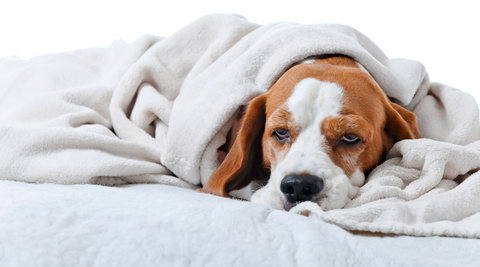
If you're a dog owner with a picky eater on your hands, don't worry – you're not alone! There could be an underlying medical reason for your pet's loss of appetite. While there are many reasons a dog might become hesitant to eat from its bowl of food, it's essential to contact your veterinarian if you notice a change in feeding behaviour.
One common cause of a fussy eater is food intolerance. Dogs intolerant to certain ingredients in their food may experience discomfort for hours after eating, leading to reluctance when it comes time to chow down. Similarly, dogs with food allergies can exhibit similar signs and excessive scratching due to chronic itchiness. If you've noticed these symptoms in your pup and they persist even after eliminating certain types of foods from their diet, it's time to visit the vet.
Tartar and plaque buildup can cause discomfort and inflammation in a dog's mouth, making them less inclined to eat. Common health issues like poor dental hygiene is another potential cause of picky eating. If you suspect your dog's reluctance to eat might be due to an underlying issue like oral problems, make an appointment with your veterinarian for a check-up. They will be able to tell if there is an issue and recommend the best course of treatment.
Dogs are just as prone as humans to exhibit emotional changes through eating habits. If your pup's food is constantly changing, being served in an unfamiliar environment, or harassment from other pets, you might notice changes in their eating behaviour. Finicky eaters can also be caused by changes at home, anxiety, or other stressors. The best way to combat this is to ensure your dog feels safe and comfortable. Give them a quiet place to eat where they won't be bothered, and try to stick to a regular routine as much as possible.
If you've tried all of these things and your pup is still being picky, don't worry! It's important not to force them to eat if they're not interested, as this can lead to further problems down the road. Continue providing them with a variety of healthy regular food like dry kibble they like in their food bowl, and be patient – with time, they may start to eat more regularly again.
What are the differences to look out for?
If your dog is a picky eater, you can do a few things to help them out. The most significant indicator of whether the issue is behavioural or health-related is if the pickiness changes your dog's relationship with food, rather than a consistent pattern. If their health is good overall, but they've always been picky about their balanced diet, it might indicate that 'fussy eater' tag is just a character trait. In contrast, if your dog suddenly becomes picky about his food, that is more concerning from a medical standpoint. Pickiness about food in puppies with few reserves should be treated by a veterinarian within 24 hours to avoid it developing into a more serious medical issue (sooner if your pup doesn't eat or drink at all). Talk to your vet if your dog's appetite isn't back to normal after 48 hours.
Picky eating can cause several health issues
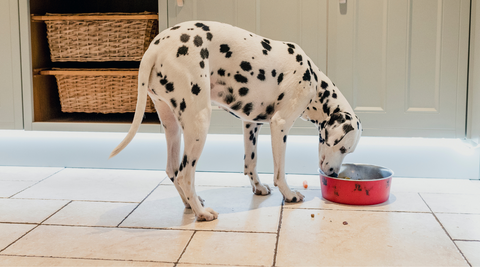
Like in humans, poor nutrition due to picky eating can lead to health problems for dogs. The most common medical conditions are malnutrition, gastrointestinal upset, and weight loss.
Dogs that are finicky eaters with their food may not get the nutrients they need, leading to malnutrition and weight issues. Abrupt changes in diet can also cause stomach upset, leading to vomiting and diarrhea. And if a dog is eating too much fatty food, it can cause pancreatitis.
It's important to be vigilant when your dog is a picky eater because you may resort to anything and everything to get them to eat. This includes constantly changing their diet or cooking their food yourself - both of which can lead to health problems if not done correctly. So if your dog is a picky eater, watch out for these potential health issues and take corrective action if necessary.
What to feed a picky eater?
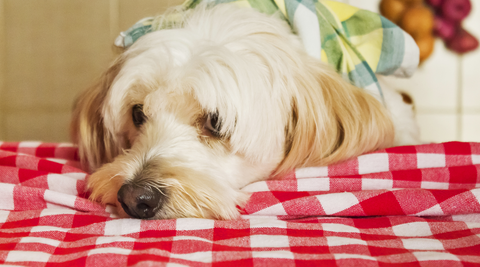
A constant change in the dog's diet is one of the leading causes of picky eating. So, what's the secret to getting a picky eater to eat? The key is to find out what foods your dog likes. This may seem like a simple task, but it can be tricky. Human foods like rice and boiled chicken with no bones and skin are suitable for dogs with upset stomachs. You can serve this for a couple of days to see if your dog's appetite improves. Even if you plan to make home-prepared foods in the long run, you have to make sure the quality food is balanced and complete. It's worth noting that most dogs' default food, kibble or dry dog food is highly processed and made using extremely harsh cooking methods to make less-than-savoury ingredients safe. On the other hand, fresh food, tastier food, is much more palatable and easier to digest. Ensure your dog has a balanced meal to get all the nutrition and maintain a healthy weight.
So, before making any changes to your dog's diet, current food and food intake, whether you feed your wet food or dry food, be sure to do your research and consult with your veterinarian.
What can you do to help your dog eat better?
Sometimes variety isn't the spice of life for dogs. Many dogs have trouble adapting to new foods or sticking to a regular feeding routine. But don't worry, there are things you can do to help get your pup back on track.
One of the most important things is to set strict feeding times and make sure your dog is only eating what's offered during those times. You should also remove any uneaten food after a certain amount of time has passed. This will help your dog understand that it's time to eat when food is offered and that they won't get another chance later.
You should also minimise extra treats and only give them when used for training purposes. This will help reduce the chances of your dog feeling full and not wanting to eat their regular meals.
Finally, try adding some parmesan cheese or bone broth (or bone broth powder) to your dog's food. Many dogs find cheese irresistible, and bone broth is packed with health benefits. This can help make mealtime more exciting for your pup and encourage them to eat their current food at dinner.
What causes actual picky eating? And what can be done about it?
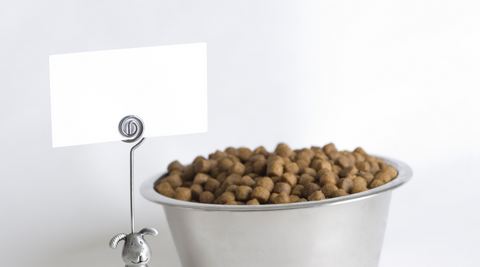
Even if there aren't any health issues, it's reassuring to know that picky eating can be just a personality thing. Small breed dogs are more prone to picky eating, but even the most food-motivated dogs, like Labradors, can be picky. A few dogs are notoriously picky eaters, including the Basenji, Siberian Husky, and Yorkie. Conversely, some dogs become picky due to their owners' unintentionally counterproductive feeding behaviour. When people give their dogs too many treats, overfeed table scraps, keep changing their food, or don't address stress, they can make them picky with their food.
How should you handle a picky dog?
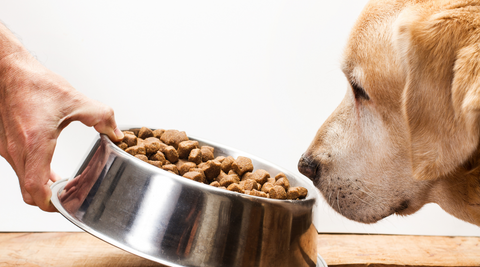
The best approach is to try and identify any potential causes and address them. For example, if your dog is picky because they're always being given new foods to try, try sticking to a feeding schedule and meal plan. If your dog is overweight, work on slimming them down through a complete diet and exercise. And lastly, if you think stress might be a factor, consider implementing relaxation techniques like massage. With a bit of effort, you can help your picky eater become a more confident and healthy eater at dinner time!
Conclusion
One of the most essential things is establishing mealtimes and ensuring your dog is only eating what's offered during those times. You should also remove any uneaten food after a certain amount of time has passed. This will help your dog understand that it's time to eat when food is offered and that they won't get another chance later.
You should also minimise treats and only give them when used for training purposes. This will help reduce the chances of your dog feeling full and not wanting to eat their regular meals.
Finally, try adding some Parmesan cheese or bone broth (or bone broth powder) to your dog's food. Many dogs find cheese irresistible, and bone broth is packed with health benefits. This can help make mealtime more exciting for your pup and encourage them to eat a balanced optimal diet and complete food.
With a bit of effort, you can help your picky eater become a more confident and healthy eater!
Changing The Way Dogs Eat for Good!
As responsible pet parents, we know that you want to do everything to help. Living with a sick dog after a meal is no fun. Our two doggos, Marley and Belle, both like to eat fast! So we know exactly what it's like to live with a dog in pain and discomfort after eating.
We are introducing the Ultimate, Versatile 4-in-1 Slow Feeder Dog Bowl! We're excited this new slow feeder dog bowl combines modern design with innovative functionality. It's more than just a slow feeder. A slow feeder bowl that naturally slows your dog down at chow time, as well as a reversible lick mat so your pet can enjoy a variety of delicious foods like purees, stews, or wet food. An excellent bowl for easy delicious food prep and storage doubles as a dog-friendly travel bowl for your canine adventures.
Your dog will have a happier, healthier mealtime experience giving you peace of mind.




